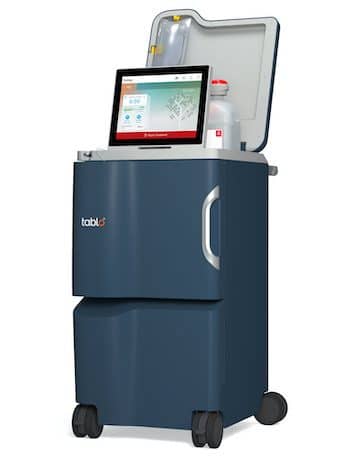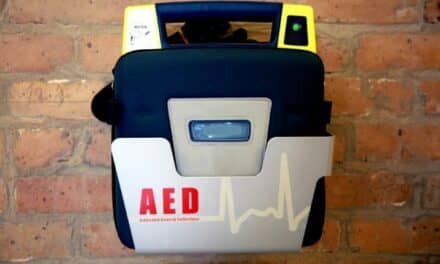Outset Medical Inc., San Jose, Calif., has announced that its Tablo Hemodialysis System for home use has received the first-ever approval from the Centers for Medicare and Medicaid Services (CMS) for a Transitional Add-on Payment Adjustment for New and Innovative Equipment and Supplies (TPNIES). According to the company, this decision will encourage healthcare providers to embrace new technology enabling more patients to dialyze at home.
TPNIES is a recently enacted program by CMS designed to increase access to new and innovative medical technologies for end-stage renal disease (ESRD) patients. Introduced in 2020, the add-on payment addresses barriers in the ESRD bundled payment system that discourage providers from adopting new technologies when they come to market. As part of the TPNIES approval, healthcare providers will have access to supplemental reimbursement over the next two years to support their patients’ use of Tablo at home.
“For too long, ESRD patients have faced a lack of innovation and options for their kidney treatment, restricting how, when, and where they dialyze,” says Leslie Trigg, chief executive officer of Outset Medical. “At Outset, we have always believed that dialyzing at home is vital to restoring identity, autonomy, and a sense of self-worth for those managing kidney disease. Today’s news is a victory for innovation and patient choice.”
More than half a million Americans depend on dialysis treatments three or more times per week, according to the company. Only two percent of patients currently receive home hemodialysis treatment, despite data indicating more favorable outcomes with home-based compared to in-center hemodialysis. According to the company, receiving in-center dialysis can create a significant burden on patients, impacting their quality of life, ability to maintain employment, and adherence to their dialysis treatment regimen.
“Doing in-center dialysis treatments during the first year of the COVID-19 pandemic was terrifying,” says Ron Kapke, a Tablo patient. “When my healthcare team suggested home hemodialysis with Tablo in early 2021, I jumped at the opportunity and never turned back. Recovery time after Tablo is so much shorter, allowing me to get back to the job I love—farming—within thirty minutes post treatment. My life has become so much more enjoyable, my energy has returned, and I dare say that there is a sense of normalcy returning.”
Designed to reduce the costs and complexity of dialysis while simplifying the patient and provider experience, Tablo was created to address the problems that have limited home dialysis adoption to date, including burdensome training requirements, complex machine operation, and time-consuming preparation before treatments. The system features integrated water purification, the ability to deliver multiple dialysis treatment types in a compact 35-inch unit, and two-way communication with the cloud, which allows treatment data to be sent electronically and enables physicians to remotely monitor patients at home.
“Outset’s Tablo Hemodialysis System not only addresses a 15-year gap in dialysis innovation, but it also delivers a device that is far easier and safer for users to navigate,” says Varshi Broumand, MD, MHA, FACP, FASN, the system dialysis medical director at CHRISTUS Health in San Antonio. “Since most adults in the United States now have smartphones with similar touchscreen interfaces, patients have felt at home with Tablo’s touchscreen, on-screen animations, and step-by-step instructions. This comfort has made the dialysis experience easier on patients, resulting in fewer complications and hospitalizations. There’s no question that when it comes to patient comfort and delivering superior outcomes, home dialysis via Tablo is the undisputed winner.”
The TPNIES approval was made after a comprehensive review of Tablo’s technology, as well as an open public comment period. Nearly 200 comments in support of Tablo were submitted by healthcare providers, clinicians, and patients during this process.






